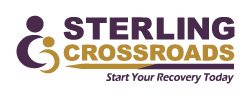For many people in America, addiction is a public health crisis that is unraveling communities, destroying relationships, and degrading countless individuals’ quality of life. The need for professional addiction treatment has never been greater. Sterling Crossroads, located in Mount Sterling, KY, is here for families and communities. We provide comprehensive outpatient addiction treatment services for a wide variety of substance use disorders. The treatment options can sometimes be confusing—two of the most popular include a partial hospitalization program (PHP) and an intensive outpatient program (IOP). Understanding the key differences between an IOP or PHP and which is right for you or a loved one is essential to getting the proper treatment for addiction and attaining recovery.
Sterling Crossroads offers an intensive outpatient program in KY, along with a range of other programs and services. Contact our compassionate team today to get answers to your questions and start your road toward healing and recovery.
IOP vs. PHP: Treatment Options
The decision to seek treatment in an IOP or PHP should be made in consultation with a qualified medical provider or addiction treatment specialist. While both programs are effective, there are differences, and each patient should be evaluated on a case-by-case basis, considering such factors as:
- The severity of the addiction
- The presence of co-occurring mental health and substance use disorders
- The level of support from family and friends
- Work or school commitments
What Is an IOP?
An intensive outpatient program typically involves attending therapy and treatment sessions for several hours a day, multiple days a week. This allows patients to continue living at home and maintain their daily routines while receiving professional treatment. IOPs also offer flexibility in scheduling, making it easier for individuals to balance work, school, or family responsibilities. IOPs may be recommended for those with mild to moderate substance use disorders who have stable living environments and supportive relationships.
What Is a PHP?
A partial hospitalization program, also known as a day treatment program, offers more intensive and structured treatment than an IOP. Patients attend therapy and participate in various activities for several hours a day, five days a week. Patients may return home at the end of each day or, depending on the severity of the addiction, medical considerations, and treatment needs, may remain in the treatment facility around the clock. PHPs may be recommended for those with more severe substance use disorders or co-occurring mental health conditions that require more focused care.
IOP or PHP: What Are the Key Differences?
Both intensive outpatient programs and partial hospitalization programs are effective programs for addiction treatment. However, there are key differences that may make one a better fit for you or a loved one.
Role in the Continuum of Care
A partial hospitalization program is generally more structured, supervised, and demanding in terms of the treatment regimen and accountability. Patients with more severe, long-lasting addictions or multiple substance use disorders, sometimes accompanied by anxiety, depression, or other mental health concerns, are often good candidates for a PHP.
An intensive outpatient program is often a “step down” from a PHP after a patient has made progress in their treatment goals. It offers greater flexibility while still providing a regimented treatment program of therapy and additional supportive resources.
Level of Supervision
Put simply, individuals participating in a partial hospitalization program need more supervision. This is often due to the severity or duration of their substance use disorder or the presence of other complicating factors, such as polysubstance use. The presence of an around-the-clock team of medical and addiction treatment specialists is often part of a PHP.
An IOP allows patients greater flexibility to return home at night or attend to personal, professional, or academic obligations. While still providing an intense treatment regimen, the patient does not require as much monitoring or supervision.
Accountability
Being accountable to your treatment program covers multiple factors, such as your risk of relapse and your willingness to engage with and follow the treatment regimen. Most patients in a PHP require more oversight to ensure they remain accountable. Since PHP participants usually have more severe addictions, it can be challenging for them to maintain accountability. Of course, the goal is to see them stick with treatment and progress toward recovery, so enhanced supervision and monitoring are part of a partial hospitalization program.
Greater flexibility in an IOP means the patient has gained a greater level of accountability. They likely have a support network and are fully ended with their treatment plan and recovery goals. An IOP is still highly structured and provides comprehensive treatment and support, but it is often a step down from the PHP, which requires more significant levels of accountability.
Choosing the Right Program: IOP or PHP
When deciding between an IOP or PHP, it’s essential to consider both personal factors and the recommendations of behavioral health professionals. Both programs offer individualized treatment plans and ongoing support to help individuals achieve long-term recovery.
At Sterling Crossroads, we work closely with our patients to ensure they have the right treatment plan and program to meet their recovery needs and goals.
When to Choose an IOP
An intensive outpatient program is an excellent choice for individuals who require structured support but do not need around-the-clock care. IOPs are designed to help patients balance treatment with personal responsibilities, such as work or family commitments while maintaining access to comprehensive therapy and counseling. This program allows individuals to gradually reintegrate into daily life as they work toward recovery.
An IOP may be the best fit if you:
- Have a stable and supportive home environment.
- Are motivated and committed to recovery.
- Require flexibility to manage work, school, or family obligations.
- No longer need the higher level of care provided in a PHP.
- Are seeking continued structured support in a less intensive setting.
When to Choose a PHP
A partial hospitalization program is an ideal option for individuals who need a higher level of care than an IOP can provide. PHPs offer a structured environment with intensive therapy, allowing patients to focus on their recovery during the day while receiving around-the-clock support. This program is suited for those who require more comprehensive support due to the severity of their condition or recent relapse.
A PHP might be the best fit if you:
- Need intensive therapy and medical monitoring.
- Have recently completed residential treatment and need a step-down level of care.
- Require a structured environment to prevent relapse.
- Benefit from a highly focused treatment setting to address severe symptoms.
- Are transitioning from detox and need continued support.
It is essential to consult with your medical provider or a behavioral health treatment center like Sterling Crossroads to determine if an IOP or PHP is right for you or a loved one.
Contact Sterling Crossroads for an Intensive Outpatient Program in Mount Sterling, KY
At Sterling Crossroads, we understand the complexities of addiction. We know that individuals caught in the cycle of addiction strain family relationships and, in turn, community ties. We’re here for your family, and our IOP offers a path toward addiction recovery. Call 859.274.4422 or reach out online to learn how our intensive outpatient program in Mount Sterling, KY, can help you.





